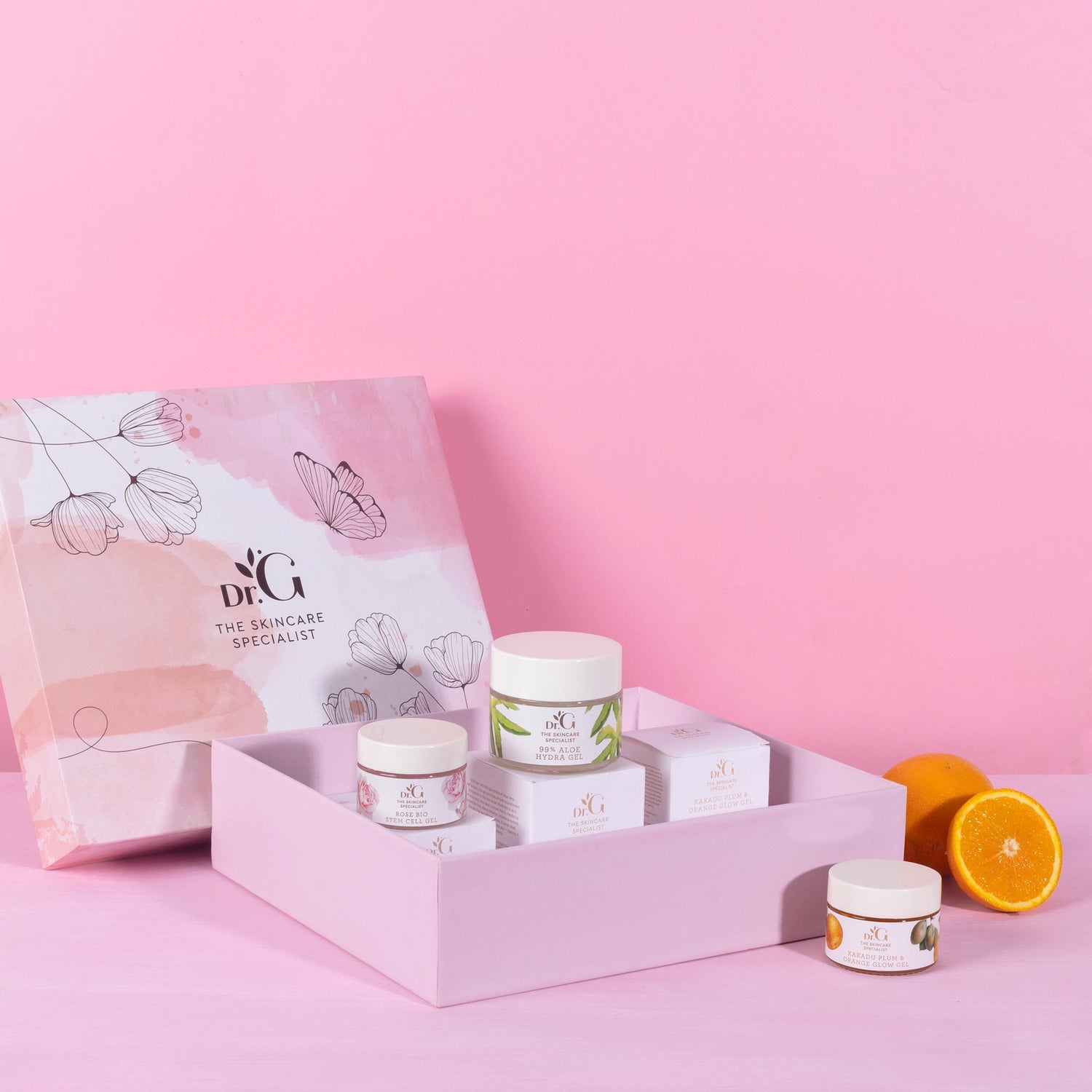Can they be used interchangeably? How do they perform? Let’s find out!
Making both face oil and moisturizer a part of your regular skincare regimen can feel counterintuitive, especially if you have oily skin. However, contrary to popular belief, using face oils can increase the efficacy of your moisturizer. It isn't face oil vs moisturizer rather face oil and moisturizer, because of how well they work together.
what’s the difference in face oils vs moisturizers?
Moisturizers
Moisturizers are one of the most essential products of a skincare routine, and regular moisturizing is important to achieve healthy, supple skin. They are categorized as humectants and emollients, meaning they hydrate and moisturize skin by drawing water from the environment. One of the most common examples are glycerin and hyaluronic acid. Include a moisturizer in your morning as well as evening regimen to keep the water levels of your skin balanced.

Face oils
Facial oils, on the other hand, are occlusive ingredients that develop a physical barrier to prevent loss of water. They maintain water content but do not add it. Oils are more suitable for night application as they take longer to sink into the skin. They are an incredible complementary addition to your creams and serums, but they should never be used as a substitute for moisturizers.

Face oil vs moisturizer: How to effectively moisturize your skin using both?
Face oils and moisturizers are two key hydrators that work very well when used one after another. For an effective moisturizer, it is important to use humectants that draw in water to the skin and occlusive ingredients that lock in that moisture. Humectants and occlusives are a dynamic duo—the combination of both can give you glowy and healthy skin. For best results, pat facial oil on your skin after applying a lightweight lotion and massage using a sweeping upward motion.
Pro tip: Use the Dr. G Butterfly Gua Sha in an upward and outward motion for intense hydration and deeper penetration of your skincare products.
Face oil vs moisturizer: Are they suitable for all skin types?
Moisturizer
The efficacy of a moisturizer, for any particular skin type, largely depends on the ingredients that it constitutes. It is important to consider your skin type before purchasing a product.
Ingredients like hyaluronic acid, glycerin, vitamin C, and niacinamide work wonders for nearly all types of skin. They not only help retain moisture and improve hydration but also eliminate oil and dirt without stripping skin or clogging pores. If you have sensitive skin, choose natural and light hydrating ingredients with anti-inflammatory properties—like aloe vera—for a calming effect.
Face oil
It is a myth that oils are only for dry skin types. Application of face oils without any moisturizer can cause dehydration because it may compromise the skin barrier underneath the oils. Face oils work well with every skin type including oily and blemish-prone skin. The key is to know the right oil for your skin. Oils like argan and jojoba are light and penetrate the skin quickly without clogging pores, making them suitable for people with sensitive skin types. These facial oils also contain ingredients that remove dead skin cells and can even kill acne-causing bacteria.

Face oil vs moisturizer: Which face oil and moisturizer should you choose?
Moisturizer
- For dry skin types, choose the Dr G HA Intense Moisturiser
- And, for oily skin types, choose the Dr G Hydra Cool Plumping Serum
- For sensitive skin types, choose the Dr G 99% Aloe Hydra Gel
Face oil
The Dr. G Face Oil contains argan and sweet almond oil that moisturizes and brightens skin, reduces signs of aging, and repairs damaged skin at the cellular level. It also contains vitamin C and E that stimulate collagen production, keeping skin hydrated, firm, and supple. They also work together to protect skin from environmental aggressors. If you have sensitive skin, this face oil should be your best friend—its naturally-derived ingredients benefit skin from the inside out.





